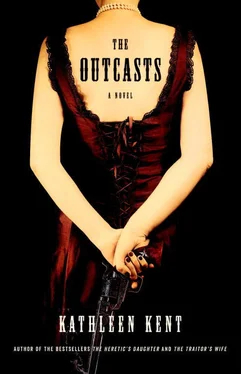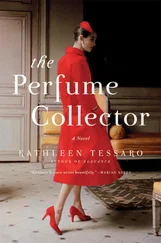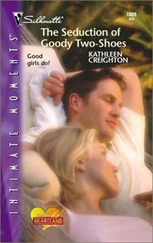Nate’s own father had never so much as given a nod to his son’s accomplishments and talents, such as they were. And yet this one man, unknown to Nate until several weeks ago, had counseled him, encouraged him, and entrusted to him his last earthly possessions.
Nate pressed the already cooling hand to his own forehead and then laid it back on the bed. Soon after, he walked from the hotel down to the pier to book his passage to New Orleans.
The sun was now low in the west, muted and red through a thin mist of clouds, and he led his horse calmly up the boarding ramp and onto the steamer going to New Orleans. He removed the saddle and stowed it and Dr. Tom’s Winchester with the general tack, but he carried the valuable Whitworth with him onto the deck, where he cradled the rifle in his arms like a child and watched Galveston Island slipping away.
Lucinda lay on a day couch, her face toward the ceiling, but she cut her eyes to the side, following the movements of Hattie Hamilton as she paced the floor. The madam had one hand in a fist at her hip, and she pointed and jabbed the forefinger of her other hand like an ice pick.
“I won’t have any sick girls in my house, Bill. It was deceitful of you not to tell me.”
Bill shifted in the chair set closest to the couch, nodding sympathetically, as though he were merely complicit in the deception and not the perpetrator of it. He exhaled a dense band of cigar smoke and carefully, with his fingertips, plucked a grain of tobacco from his bottom lip.
Hattie added, directing her finger at Lucinda, “You’re lucky she didn’t have the fit while the judge was still on top of her.”
Bill smiled. “Vero nihil verius.”
“Don’t get coy with me. She can’t stay here. She’ll have to go.”
Bill dropped his head back to gaze at the ceiling. “Hasn’t she been a good earner?”
“As far as it’s gone. Yes.” Hattie had stopped pointing and now planted both fists on her hips. “But Bill, it spooks the customers. I get some old piddler on her while she’s rattling around with one of her fits, and he’s like to die of heart failure. And then I’ve got a fire stampede out the door.”
Bill looked at Lucinda, who met his gaze for a moment and then looked away. “You’re not using your imagination.”
“What do you mean?” Hattie looked from Bill to Lucinda and back again.
“A specialist.”
Bill stood up, and for a moment Hattie looked to move back a step.
He said, “Perhaps someone who would simply want to watch.”
Hattie ducked her chin. “To watch?”
“Yes. To simply watch.” Bill smiled at her as though he’d solved a complex riddle. He placed an arm behind her ample back and guided her to the door. “Think about it, Hattie. I’m certain that with your contacts, you’ll find someone who would, even at a moment’s notice, come and see…How should we call it?…Death dancing with the maiden.”
He closed the door after Hattie and returned to the couch to stand over Lucinda. He pulled a vial from his coat pocket, placed it on the small table next to her, and said, “Lucy, you don’t have the luxury of being sick right now. If we lose your fish because of this, we’ll have to start over again, in some other city. We don’t have the time, and we don’t have the money for it.” He reached down and brushed the hair off her forehead but then pinched her ear painfully between his thumb and forefinger.
“Don’t make me sorry that I forgave you in Galveston.” He kissed her on the mouth. “You seem less excitable when you’re on the laudanum. I’d recommend a spoonful every few hours to begin. Perhaps you should start now.”
He straightened and turned his back to her, then walked from the room.
She fixed her eyes on the mural of the Muses painted on the ceiling, breathing through her teeth; the sickness in her stomach and bowels rose to her throat, threatening to spill over her tongue and out of her mouth and spoil the satin covering of the couch. Her vision still pulsed; the lines of the painting danced crazily. But to close her eyes brought a more unbearable feeling of being knocked from a water tower. She slowed her breathing, counting the folds in a Muse’s cloak, and the nausea retreated.
The attack had come without warning and with none of the usual signs, and she had no memory of what had happened between the time she lifted her skirts to the judge and the moment she’d awakened, an hour later. She had opened her eyes to the madam and some of the other girls standing around the bed, their expressions fearful—the foreign-born girls crossing themselves in frantic succession—but all of them with an unreserved curiosity. The judge had long since fled and one of the girls murmured that Hattie would have to give him free humps for a month of Sundays.
The judge was old and mostly impotent, liking best to look at her body through the film of a nightdress. He tipped her well and was courteous, and she was sorry to have lost him.
She wondered how many other customers she would lose because of the revelation of her illness. She thought it possible that her fish, the skittish and guilt-ridden client she had stolen from Tartine, might use this as an excuse to discontinue their increasingly dangerous games of restraint and orchestrated punishment. She thought of telling him that it was all an elaborate act, that the judge had asked her to feign being unconscious and helpless, but she could imagine Tartine, or any of the other girls, whispering into his ear the shameful details of her sickness: the terrible distortions of her face and limbs, the spittle from her mouth, her loosened bladder.
A cautious knock sounded at the door, after which it opened slowly. A young woman entered the room and stood looking at Lucinda from a distance.
“Hattie asked me to come see after you.”
Lucinda remembered that the girl’s name was Katrin, but she couldn’t recall from which northern, sunless place she had come. Perhaps Germany, or Sweden? Katrin was dressed in a thin linen petticoat, and the curve of her pregnant belly was visible through the fabric. She followed Lucinda’s gaze and cupped her mounded flesh with one arm. Lucinda had heard that the girl had followed every bit of whores’ wisdom on ending a pregnancy, from tincture of arsenic to repeatedly jumping off a table, to no avail.
She returned Lucinda’s gaze and shrugged. “I guess the little bastard still expects to be born.”
Lucinda asked for some water and then told the girl to go. Lucinda drank sparingly and soon began to feel better, her vision clearing. The intense nausea was a new, unwelcome visitation. A memory connected to the nausea and brought on by the girl’s appearance began to surge into her consciousness, and she reflexively looked to the ceiling, trying to hold the threatening thoughts at bay.
But her thoughts slipped free and she realized she hadn’t felt so sick to her stomach since her own pregnancy three years before. And with this breach came a flood of remembrances.
The first few months of it she’d spent with her face over a porcelain thunder mug and she thought she would surely die of starvation. Then one day she woke and had no more sickness. It had disappeared like clouds before a strong wind, leaving only a ravenous appetite and her eyes bloodshot and swollen from the ceaseless retching. She came to feel better than well, to feel as a child does at the outset of a summer’s day, a child who has never known illness or injury and is experiencing only the certainty of newly developed muscles, liquid within supple skin.
But the fits returned in her sixth month and worsened in severity and duration until she feared she would be extinguished completely or rendered a simpleton by a brain rupture. She began to loathe and fear in equal measures the body growing inside of her own, was jealous and resentful of it sapping her strength and vitality.
Читать дальше












